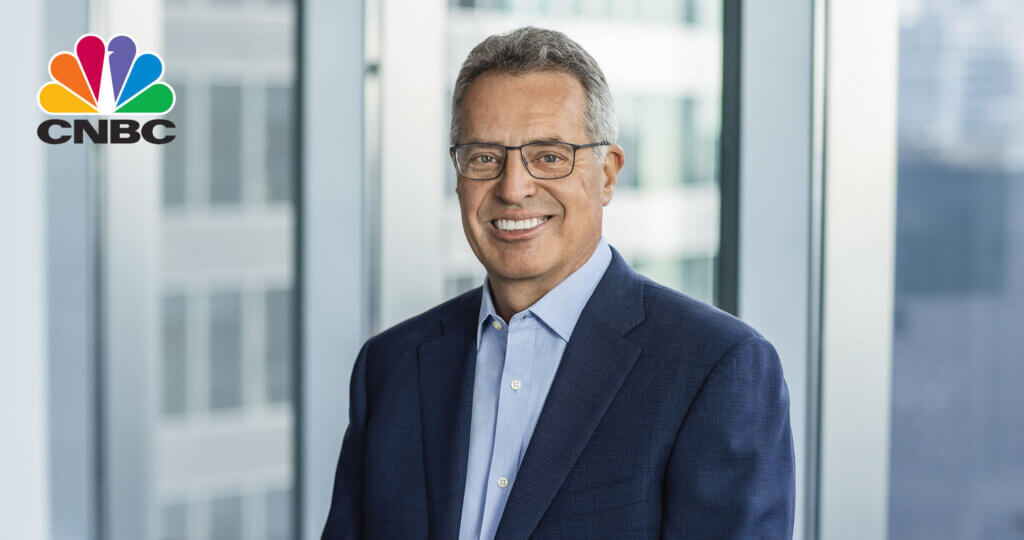
The idea of caring that someone is making money faster [than you are] is one of the deadly sins [of investing]…– Charlie Munger
The number seven has historical significance and symbolism. It has been associated with wisdom, intuition and divine connection. There is the belief that people linked to this number are insightful, truthful, introspective and intellectual. And, according to a 1956 study by George Miller of Harvard University, the average person (not those of you reading this letter… other people) can retain only seven items of information at a time—a theory behind the seven-digit phone number. And, of course, for those who have sat down at a slot machine, hitting a “777” usually means a big payoff. For some, hearing “Magnificent Seven” may instill memories of the 1960s Western starring Yul Brynner and Steve McQueen. But for those of us following the market, we have read more than enough about the “Magnificent Seven” as it pertains to the seven mega-cap stocks in the S&P 500 Index that make up nearly 30% of the index and contributed the majority of its 2023 returns. To put it in perspective, the two largest companies, Apple and Microsoft, garner more influence in the index than do the entire bottom 275! The median return for the “Magnificent Seven” stocks in 2023 was 80% compared to just 10% for the remaining 490 plus. This is not so surprising when one realizes that two-thirds of the component stocks returned less than the index and nearly one-third posted negative returns. The clear concern is that with such a top-heavy index, where just a handful of stocks are responsible for such a disproportionate amount of the returns, the index becomes much more vulnerable to a downturn if just a few of them falter. During 2022, an environment that was dreadful for stocks in general, was especially painful for these seven, which on average fell over 45%.
The narrow market supremacy presents us with many great opportunities. There are numerous high-quality, but overlooked, companies out there; you likely hold a number of them in your portfolios. We will continue to invest in and hold on to those stocks whose valuations look compelling to us, whose fundamentals we believe will improve, and that are run by shareholder friendly management teams. Solid companies with strong capital positions that are trading at unchallenging valuations should pay off over time. We will exhibit the patience to let those stories play out without feeling compelled to make a change merely because the stock price is lagging some of its peers. In chess, there is a term called “zugzwang,” a situation in which a player is put at a disadvantage by being obligated to move, when the best thing to do would be nothing. Fortunately, the investor enjoys the luxury of being able to sit with what they have without being forced to change anything. When reviewing one’s portfolio, taking no action is as important a decision (and takes as much thought and discipline) as buying or selling.
For the long-term investor, sitting on one’s hands can serve more than just the benefit of warming them.
At Harris Associates, we own some of the “Magnificent Seven” stocks, including names like Alphabet and Amazon. We are not implying that it is imprudent to have exposure to them. The issue to think about is their weighting. At Harris Associates, if we have confidence in a name, we may be comfortable letting it rise in a client portfolio to a position that is maybe three to four times larger than what we would consider “normal.” But a name like Microsoft, for example, comprises a nearly 7% weight in the S&P 500—35 times larger than if each stock were weighted equally. This dynamic is why the return of the S&P 500 equal-weight index was less than half that of its market-capitalization weighted counterpart. There is a compelling argument that the equal-weight index is a better measure of the health of the overall market, and not the health of just a few. The short of it is that as great as some of the seven companies are, the way the S&P 500 is constructed does not represent as broad or diverse a group of holdings as many believe. Just because it worked, doesn’t mean it wasn’t risky.
After a bruising 2022, it was easy to think that 2023 may not offer much of a respite. Elevated inflation, higher interest rates and an imminent recession all weighed on our minds. However, the dire forecasts many economists and prognosticators had for 2023 certainly proved wrong (a recurring theme for this group who, despite their miserable track record, are never deterred from trying again). Of course, none of us know what is in store for the coming year. There are still plenty of headwinds, but it does appear that the U.S. economy is beginning to find its footing. Inflation is cooling, mortgage rates and gasoline prices are dropping, the labor market is strong, and consumer sentiment has improved. Add to that a Federal Reserve that has hinted that it is likely done raising rates, and we find ourselves in a scenario where the often written about and hoped for “soft landing” remains a real possibility.
A year ago many economists were saying a recession was inevitable. But actually I’ve never felt there was a solid intellectual basis for making such a prediction.–Janet Yellen
In this two-tiered market, there’s ample opportunity to put together what we believe is an inexpensive portfolio. Certainly, aside from the “Magnificent Seven,” there are many stocks that have performed quite well. The last two months of the year were especially helpful in adding to the breadth of the rally. However, we continue to find companies with compelling valuations in pockets of the market whose stocks have lagged on a relative basis, at least. This, coupled with an improving economic picture provides us with optimism as we head into 2024.
We know in many ways this has been a trying year. We are all hoping for a resolution to the conflicts in the Middle East and Ukraine and for an overall more peaceful year ahead.
On behalf of all of us in the Private Wealth Management department, I would like to give a special thank you to Clyde McGregor who, after a 46-year career, with 42 of those at Harris Associates, will enjoy a well-earned retirement. Many of you have worked with Clyde. But for those who haven’t, you have been the beneficiary of his investment acumen through many of your portfolio holdings. Clyde wore many hats at the firm, one of which was as my mentor very early in my career. As I gained experience, that relationship evolved into trusted colleague and friend— and there are many others who have enjoyed a similar relationship with him. We are all better investors because of him. His retirement is well deserved, however, everyone here will miss his presence. We thank you, Clyde, for your leadership.
As always, we thank you for entrusting us with your investment assets and your continued support. Lastly, the best compliment we can receive is a referral from a satisfied client. We appreciate your referrals and handle them with the utmost care.
Everyone here at Harris Associates wishes you and your families a healthy and prosperous 2024!
Past performance is no guarantee of future results. Current performance may be lower or higher than the performance data quoted. The gross performance presented does not reflect the deduction of investment advisory fees. All returns reflect the reinvestment of dividends and capital gains and the deduction of transaction costs. The client’s return will be reduced by the advisory fees and other expenses it may incur in the management of its account. The advisory fee, compounded over a period of years, will have an adverse effect on the value of the client’s portfolio.
The S&P 500 Total Return Index is a float-adjusted, capitalization-weighted index of 500 U.S. large-capitalization stocks representing all major industries. It is a widely recognized index of broad, U.S. equity market performance. Returns reflect the reinvestment of dividends. This index is unmanaged and investors cannot invest directly in this index.
Certain comments herein are based on current expectations and are considered “forward-looking statements”. These forward looking statements reflect assumptions and analyses made by the portfolio managers and Harris Associates L.P. based on their experience and perception of historical trends, current conditions, expected future developments, and other factors they believe are relevant. Actual future results are subject to a number of investment and other risks and may prove to be different from expectations. Readers are cautioned not to place undue reliance on the forward-looking statements.
The information, data, analyses, and opinions presented herein (including current investment themes, the portfolio managers’ research and investment process, and portfolio characteristics) are for informational purposes only and represent the investments and views of the portfolio managers and Harris Associates L.P. as of the date written and are subject to change without notice. This content is not a recommendation of or an offer to buy or sell a security and is not warranted to be correct, complete or accurate.
Investing in value stocks presents the risk that value stocks may fall out of favor with investors and underperform growth stocks during given periods.






